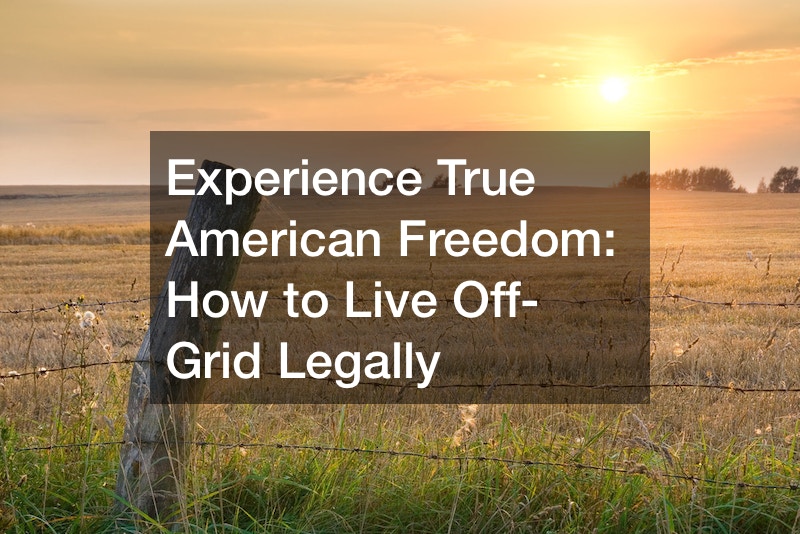Experience True American Freedom How to Live Off-Grid Legally – America Speak On

Want to learn how you can live off grid legally and want to know where to check for local and state-wide laws and regulations, check out the state’s website. Also, you can find out details about local laws in your county courthouse or public library.
Find permits and licenses.
There are required permits and permits before you’re allowed to go off grid. In the case of your area, you may need permission to build your house, connect it to utilities, or even have a septic tank installed. To determine the permit required, check with your local building department or Zoning Office. If you plan to hunt or fish off-grid, you might require a permit. If you want more details, make contact with the state fish and game department. If you are planning to stay off the grid for a while It is essential to obtain permits and licenses. Unfortunately, licenses also require funds, so ensure you factor that into your budget.
Make sure you are ready to be inspected
If you’re living off-grid, it’s likely that you’re getting the type of inspections that people who live off grid. However, that doesn’t suggest that you can’t get inspected. If someone has a complaint about the property, or is having any environmental concerns with it, inspections will be conducted. If you’re using a wood burner stove to warm your home, like, for instance, the EPA might come inspect it and make sure that it is compliant with the emission standards. If you’re raising your animals off grid or on a farm, your home could be monitored by the USDA or other agencies. You should prepare for inspections and ensure your property is compliant with all applicable codes. Additionally, it is recommended that you hire reliable contractors, like one that offers a top-quality well drilling service, to work on the property to ensure everything is up to par.
Know Your Rights
If you’re considering living off grid, it’s essential to be aware of your rights. In the case of example, you may have the option of building an apartment on
zbvttnnvft.
You may also like
Archives
- July 2025
- June 2025
- May 2025
- April 2025
- March 2025
- February 2025
- January 2025
- December 2024
- November 2024
- October 2024
- September 2024
- August 2024
- July 2024
- June 2024
- May 2024
- April 2024
- March 2024
- February 2024
- January 2024
- December 2023
- November 2023
- October 2023
- September 2023
- August 2023
- July 2023
- June 2023
- May 2023
- April 2023
- March 2023
- February 2023
- January 2023
- December 2022
- November 2022
- October 2022
- September 2022
- August 2022
- July 2022
- June 2022
- May 2022
- April 2022
- March 2022
- February 2022
- January 2022
- December 2021
- November 2021
- October 2021
- September 2021
- August 2021
- July 2021
- June 2021
- May 2021
- January 2021
Leave a Reply